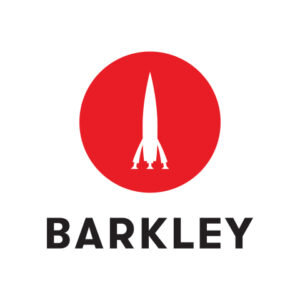Companies aren’t prepared to discuss ESG commitments with key stakeholders, despite increasing demand from consumers and investors
The importance of economic, environmental, racial and social justice has grown significantly in the last year and there has been a verifiable surge in consumer and investor interest in brands that take purpose and ESG—environmental, social, and governance—seriously. As a result, companies must be more agile and prepared to act and report on their values and ESG commitments with key stakeholders, including employees, customers and investors.
“Consumers have never been more concerned about the state of the world. They are voting with their wallets to support brands that lead with value and are sustainable,” said Lindsey DeWitte, Barkley EVP of Purpose + Sustainability. “However, we also know there is a trust gap and consumers are looking at what brands are doing to prove their ESG efforts. Engaging in these issues is now a part of every CEO’s job description.”
Marketing Technology News: AtScale Delivers “Live” Connection Experience for Microsoft Power BI
“We are living through a sea change in consumer preferences regarding sustainability, and we are just at the beginning”
The Purpose Action Gap: The Business Imperative of ESG, a new joint research effort between Barkley and Jefferies, reveals the majority of today’s brands are not prepared to meet these expectations.
- 98% of businesses say acting on ESG-related issues is more or much more important than it was 12 months ago.
- However, only 20% of companies say they are very ready to talk to Investors and only 10% are very ready to speak to consumers about ESG-related topics.
Marketing Technology News: MarTech Interview with Armen Adjemian, Co-Founder and CEO at DISQO
In contrast, stakeholder demand and expectations continue to rise.
- More than two-thirds of consumers are more committed to supporting socially and environmentally responsible companies than before the pandemic started.
- 60% of consumers are willing to pay more for products and services offered by socially and environmentally responsible brands.
- 75% of consumers are more likely to recommend socially and environmentally responsible brands to friends and family.
- More than 50% of consumers actively research brands and 66% are more likely to support brands if they provide proof of their socially and environmentally responsible behavior.
- More than half of respondents said it’s important to work at a company that aligns with their values, but less than half felt that their companies’ performance was very good.
Consumers and investors are ahead of companies in how they value and act on ESG issues. The research is clear: it’s imperative modern brands share ESG commitments and actions with key stakeholders or they’ll be left behind.
“We are living through a sea change in consumer preferences regarding sustainability, and we are just at the beginning,” said Aniket Shah, PhD and Jefferies Global Head of Environmental, Social and Governance (ESG) and Sustainable Finance Research. “The winners of tomorrow will be the ones that embrace sustainability deeply and authentically today. The results of this report should help guide the decisions of CEOs for the next several years.”













